How to Cut Accurate Tenons on the Table Saw
A dado set on the tablesaw is Charles Durfee's go-to method for cutting tenons.
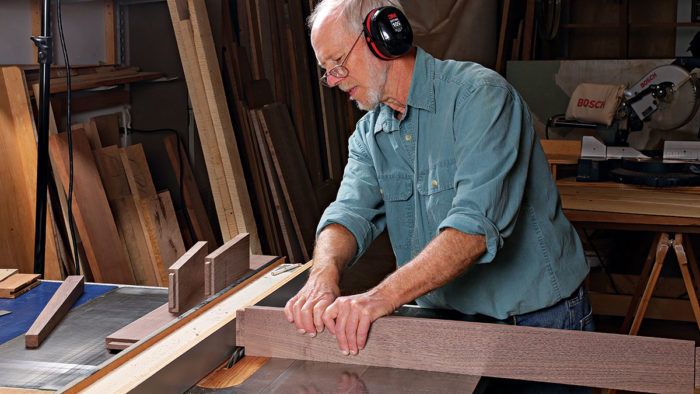
Synopsis: A dado set on the tablesaw is Charles Durfee’s go-to method for cutting tenons. It’s fast, because it takes only one or two passes on the saw. He cuts the shoulders and cheeks at the same time, and it’s easy to get a perfectly fit, centered tenon. He uses a miter gauge with a hardwood fence to support the workpiece and employs the tablesaw’s rip fence as a stop. He fine-tunes the fit at the bench.
I’ve tried many techniques for cutting tenons over the years, but the method I’ve settled on uses a dado set at the tablesaw. With the stock flat on the table, I can cut a tenon in one or two passes. It’s fast because I cut the shoulders (the base of the tenon) at the same time as the cheeks. I can dial in the fit and I get a tenon that’s perfectly centered and parallel with the faces of the workpiece. Tenons that are offset or haunched can also be cut this way but will require a few more setups.
Before you begin
It’s important to start with flat, square stock because all of the faces will be used for reference on the tablesaw top when cutting the tenons. If the stock is not flat, you’ll end up with a wonky tenon. It’s also critical that the end of the stock be square. This will result in shoulders that are square so that the joint comes together without any gaps.
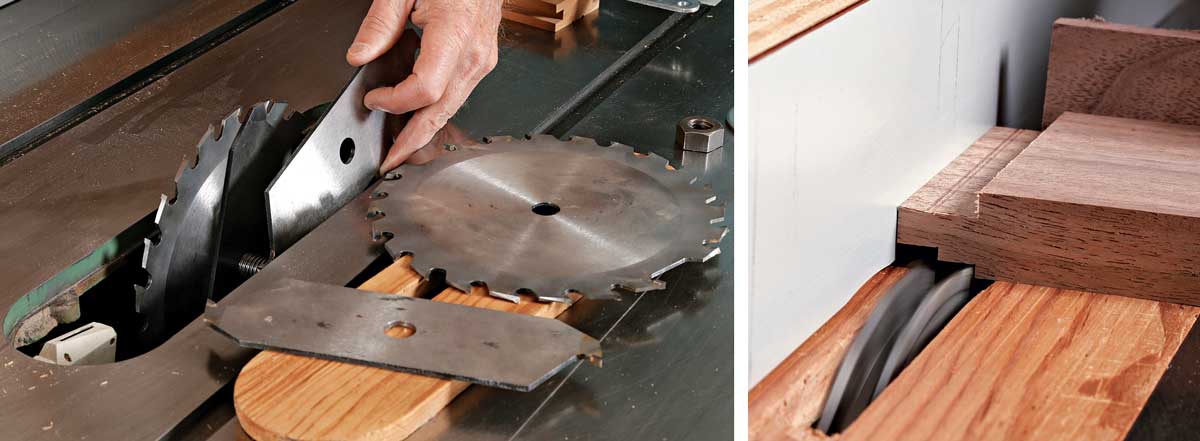
I cut all of the mortises before the tenons, because I find it easier to fit a tenon to a mortise than the other way around. The mortising method isn’t important, but if you use a router, you’ll need to deal with the rounded mortise ends— either squaring the mortise with a chisel or rounding the tenon when it’s done.
More of hand tool user?
See how Chris Gochnour cuts
mortise and tenon joints quickly
accurately by hand!
Install the dado set
I use a standard 8-in. dado set. It consists of two outer blades and a number of chipper blades between them. The blades all have teeth that make a flat-bottomed cut, a must for tenons. Most tenons are longer than the width of my dado set, so I choose a width that allows for a nice overlap from cut to cut, say 5⁄8 in. for a 1-in. tenon. For short tenons, anything under 3⁄4 in., I set the dado blade for a wider cut and bury a portion of the blade in a sacrificial fence clamped to my rip fence. This allows me to cut a full-length tenon in a single pass. Once the dado set is installed, square up the miter gauge and adjust the tablesaw’s rip fence to set the length of the tenon.
Set up the saw’s miter gauge and fence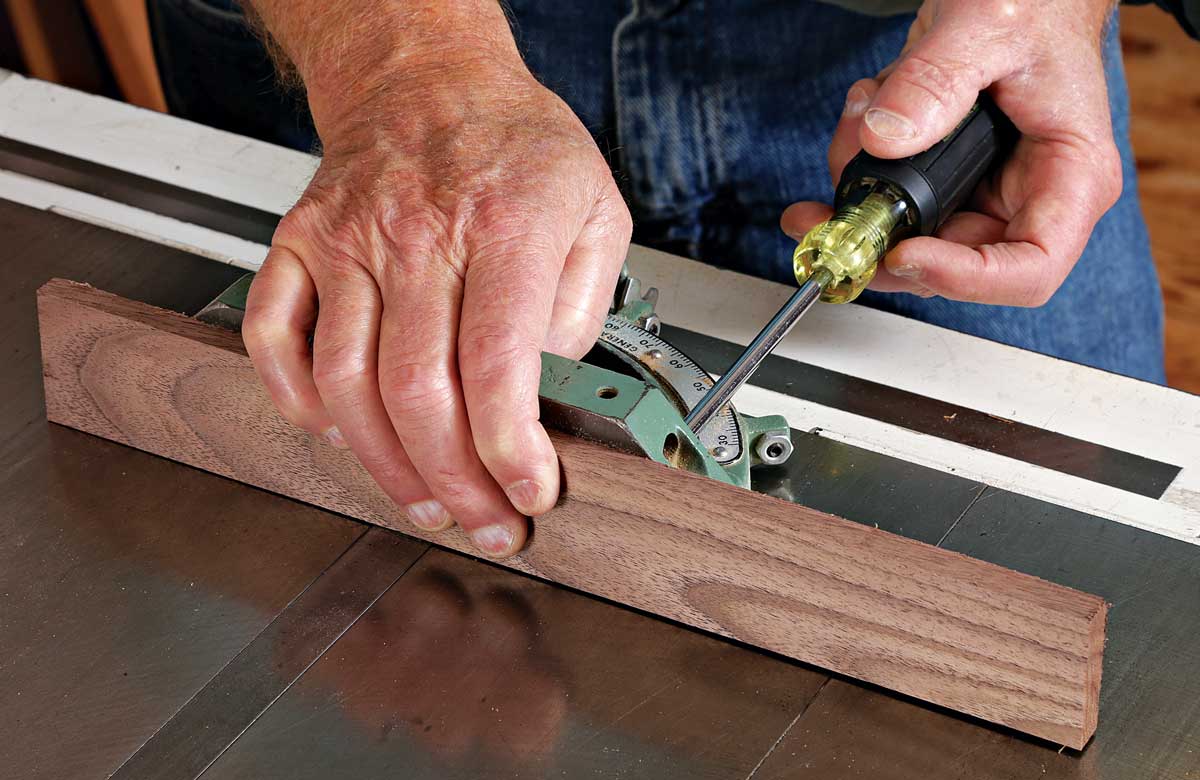 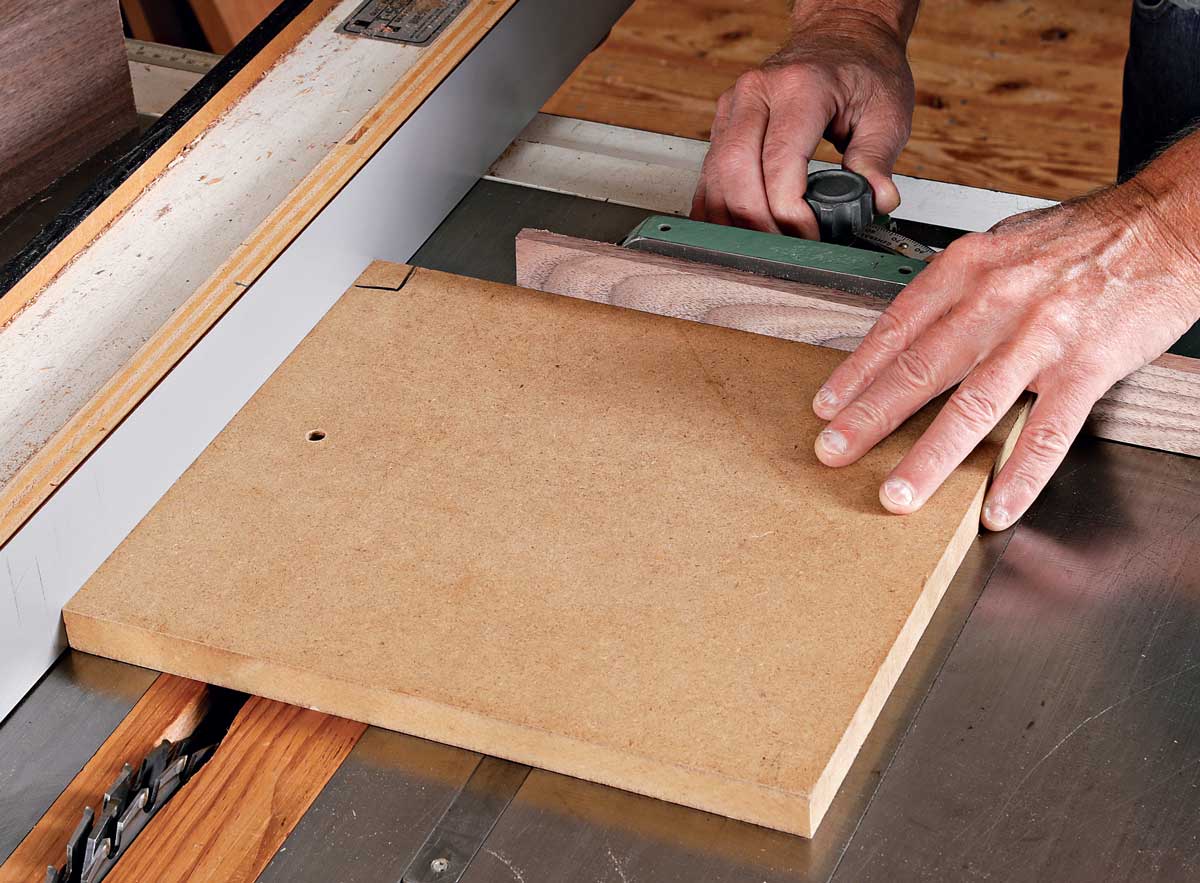 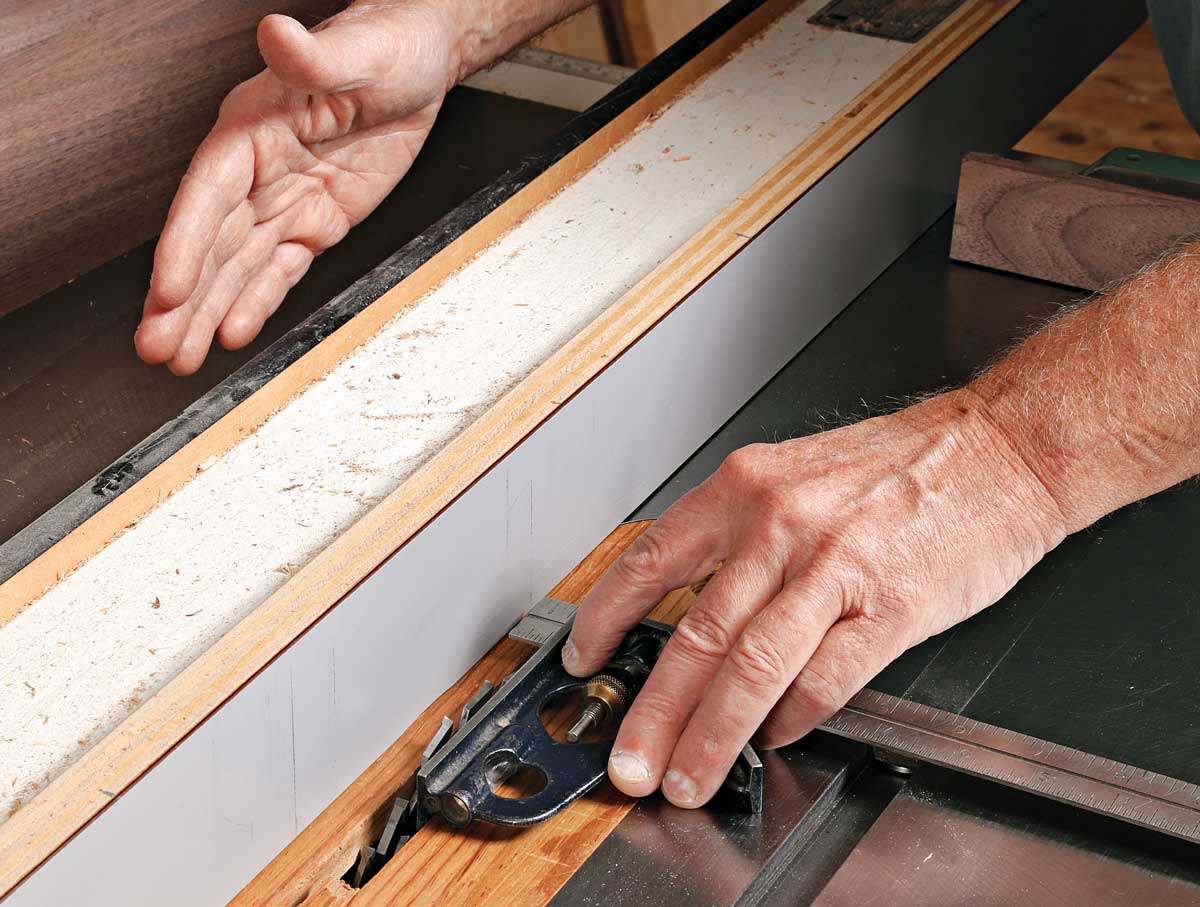
|
From Fine Woodworking #283
To view the entire article, please click the View PDF button below.
 |
|
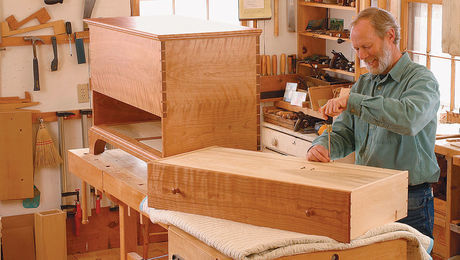 |
|
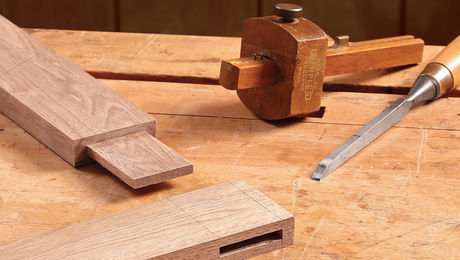 |
How to cut a mortise and tenon by handby Chris Gochnour |
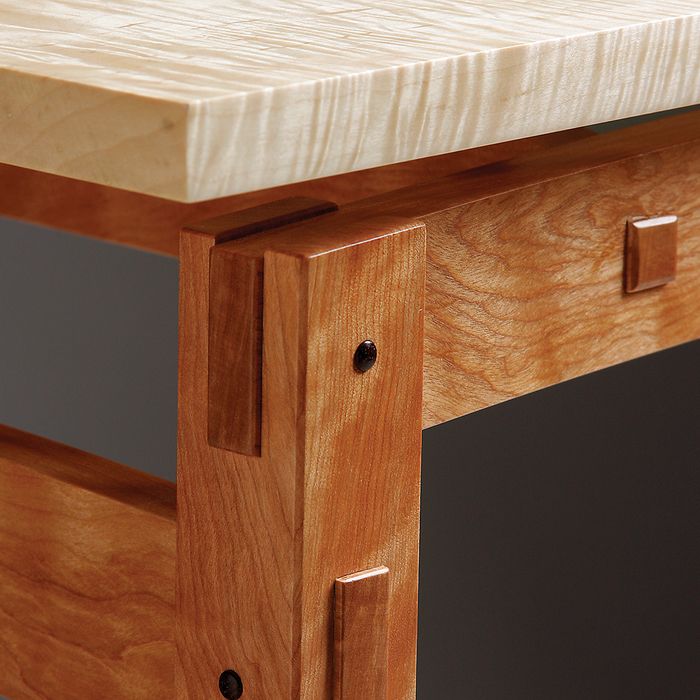

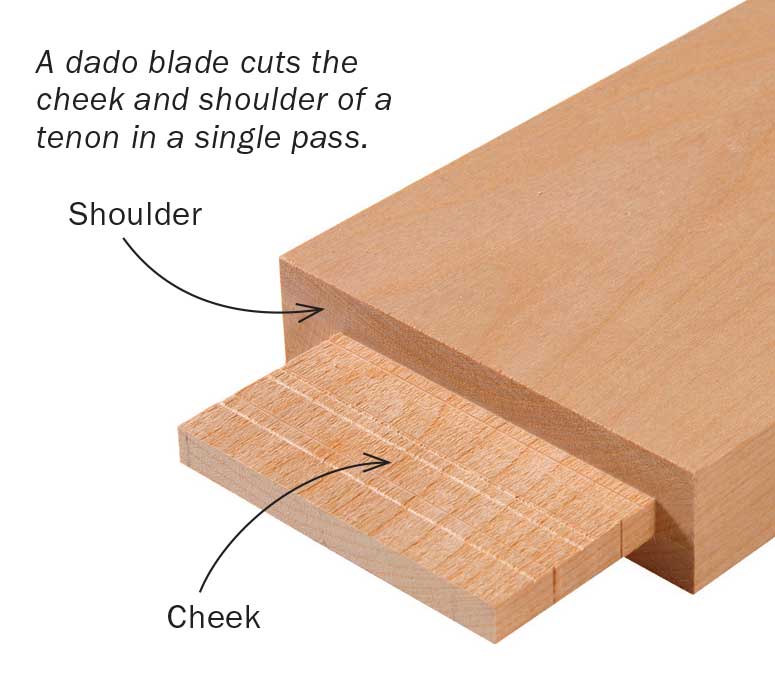
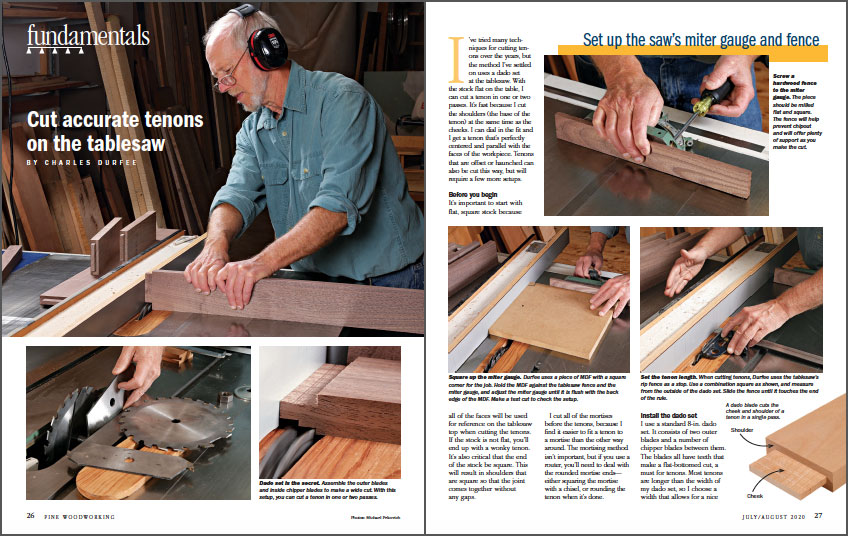

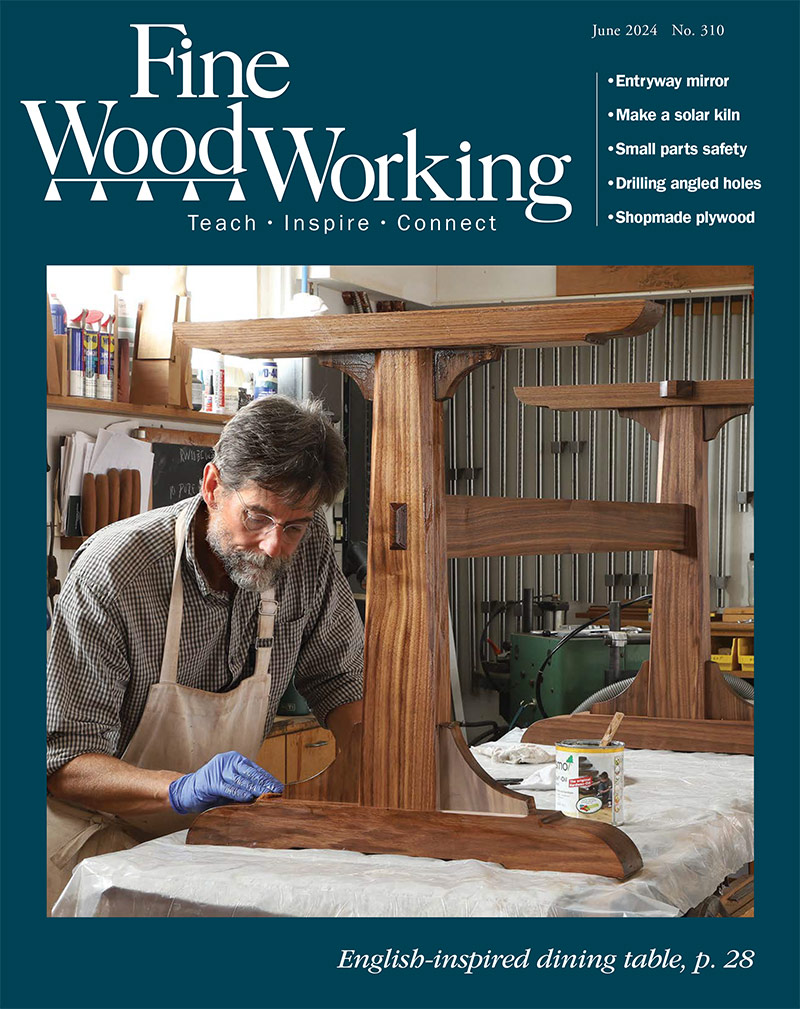
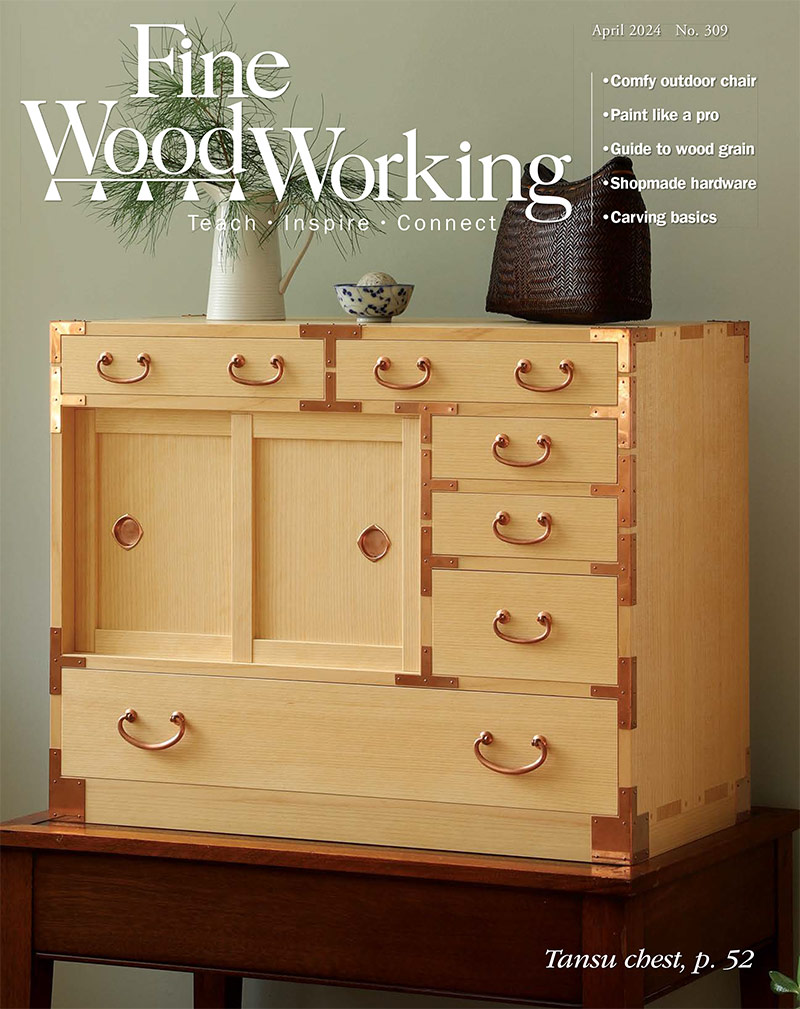
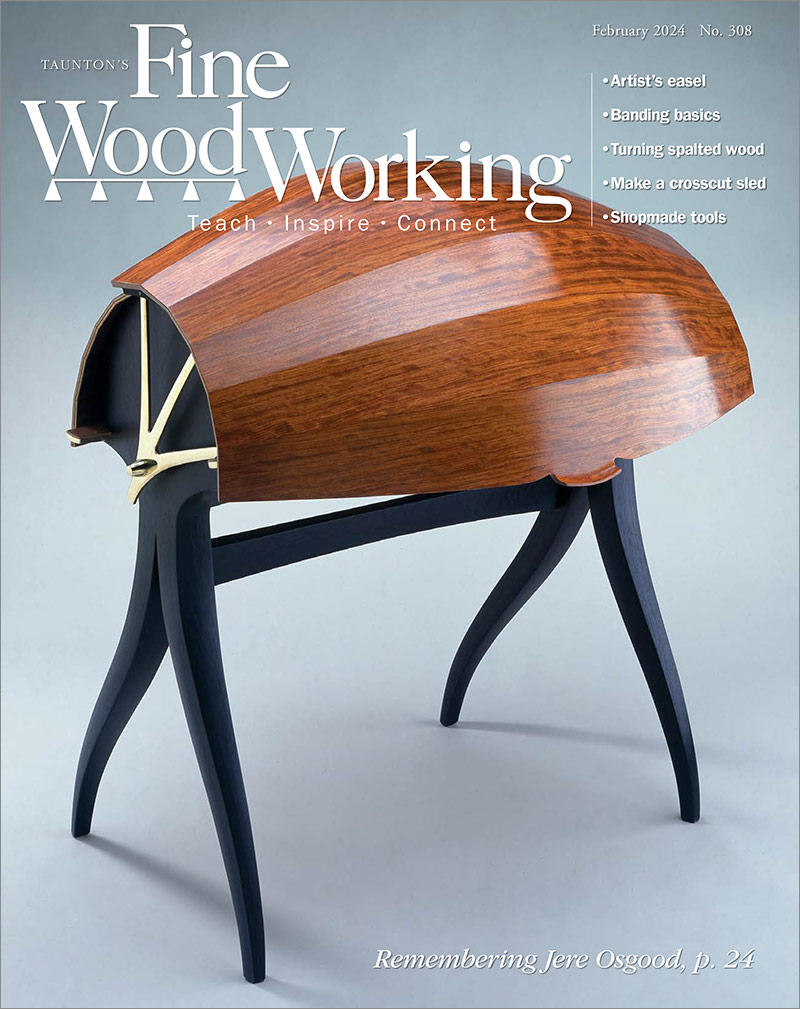
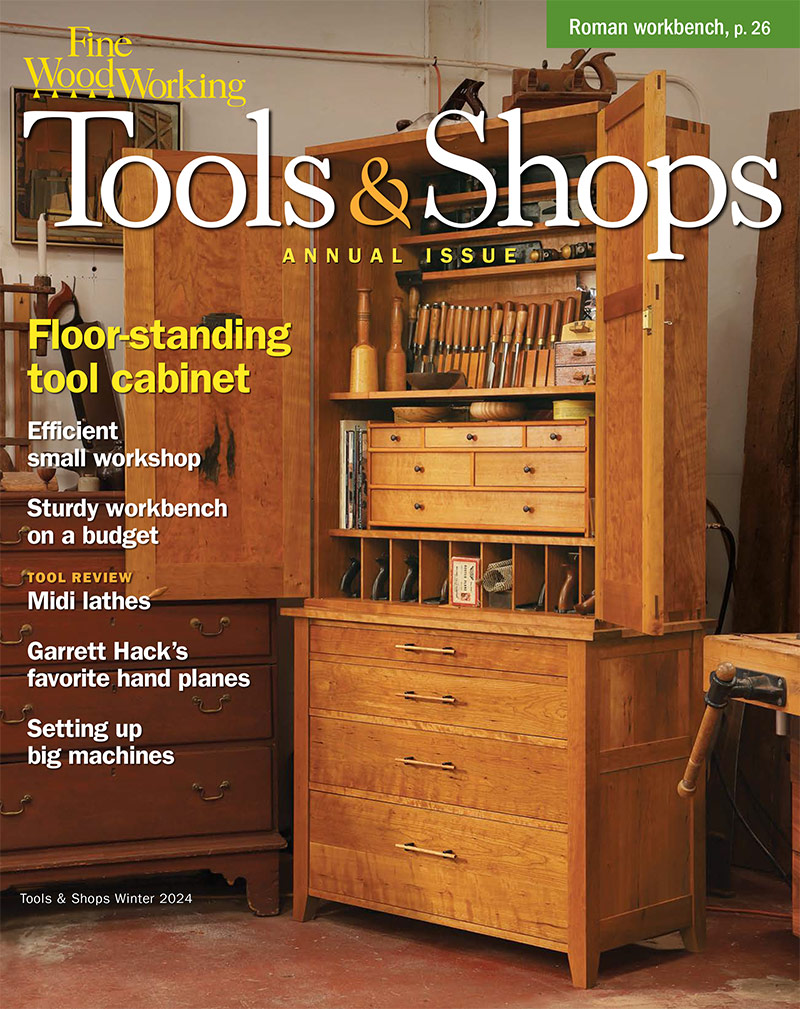
Comments
Thanks for a great article. You listed this under fundamentals, and I have cut tenons this way for years, but your article made a few points that I had overlooked all this time. I just cut a set for drawer runners this morning and adapting your techniques they came out perfect, flat and true and a tight fit.
Thanks
Log in or create an account to post a comment.
Sign up Log in